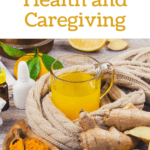
Holistic health isn’t a term often associated with caregiving. Indeed, providing treatment and support for the aging should always rely on evidence-based practices. Such practices include the use of medication and regular doctor’s visits.
Holistic Health can be defined as an approach to life. Rather than focusing on illness or specific parts of the body, this ancient approach to health considers the whole person and how he or she interacts with his or her environment. Holistic health emphasizes the connection of mind, body, and spirit. American Holistic Health Association
In contrast, holistic health can feel less practically minded. It has a strong focus on life and overall wellbeing. It certainly doesn’t seem like holistic health pairs well with evidence-based practices.
I don’t personally agree with all
The Body as a Whole
Modern medicine and disease treatment don’t tend to focus on the entire body at once. For example, you might see a doctor
Those approaches are all important, but there’s often little communication between the areas. You may even find that you’re given contradictory advice.
Yet, in reality, these areas all interact with one another.
This is particularly noticeable for physical and mental health. The two often need to be considered at the same time, but this often isn’t done.
The pattern is often seen in the way that
They’re all important goals. They’re just easier said than done.
They’re also influenced by many other factors. For example, if a person also has depression or another mental illness, they may struggle to get out of bed. Expecting them to make a radical diet change at the same time isn’t realistic. Instead, concurrent mental health treatment is an important process.
There are other factors too, even for healthy people. Emotions are one. They strongly influence eating behavior and we’re often unaware of them.
It’s important to seriously consider these angles when looking at health. Don’t assume that each area can be treated individually.
Lifestyle Changes Matter
Medication is often important for health. But, that emphasis means that we often overlook other approaches, ones that can be effective in conjunction with or instead of medication.
Plus, many seniors are taking too many medications. Finding alternative approaches may improve health and reduce the risk of side effects. For example:
- Many of the complications and challenges of diabetes can be reduced through a healthy diet and lifestyle.
- Seniors often struggle with sleep, yet sleep medications come with many risks. Most types shouldn’t be used in the long-term. Healthy sleep habits can be powerful for promoting sleep.
- Exercise programs like Tai Chi and yoga can improve strength and confidence while reducing the risk of falls. Some programs may even be suitable for the caregiver and their
caree to attend together. - Counseling can often help people address underlying assumptions and views about themselves. The process can often make it easier to improve diet and lifestyle, even though the areas mightn’t feel like they’re directly connected.
- Weight loss approaches that also consider the mind are much more powerful than those which do not. After all, we often eat for emotional reasons. Ignoring the emotional side of things can make weight loss much more difficult.
Make sure you talk over any changes with your doctor first.
Find a Supportive Doctor
Health problems are often complicated. You want to be sure that any changes you make will be safe for you or your caree in the long-term.
Getting your doctor involved can be a good way of achieving this. Look for a doctor that is willing to consider to consider lifestyle changes. In an ideal world, you want a doctor who only prescribes medication if it is truly necessary, rather than as a fast and easy fix.
Even if this isn’t an option, make sure you run any changes past your doctor, even if they seem minor.
There are often interactions and risks that you may not be aware of. For example, natural supplements will sometimes interact with medications. Dramatic diets can have metabolic effects that may not be safe with some health conditions.
Look for Education
The final lesson from holistic health is simply to learn more. We should never just take what a single medical practitioner tells us at face value. Each individual will have their own biases and they can’t know everything that the patient does.
Taking the time to understand more can help you to find solutions that work best for your situation. You can also use discussion boards and blog articles to find approaches that other people have taken. For example:
- Meal delivery services like Silver Cuisine can make it easier to ensure that seniors eat healthily. Some plans even support specific nutritional needs, like a diabetic diet.
- Many senior centers will have programs to support health and wellbeing.
- Cooking classes can help seniors to be more confident and competent in the kitchen. They’re a good source of social connection too.


Leave a Reply